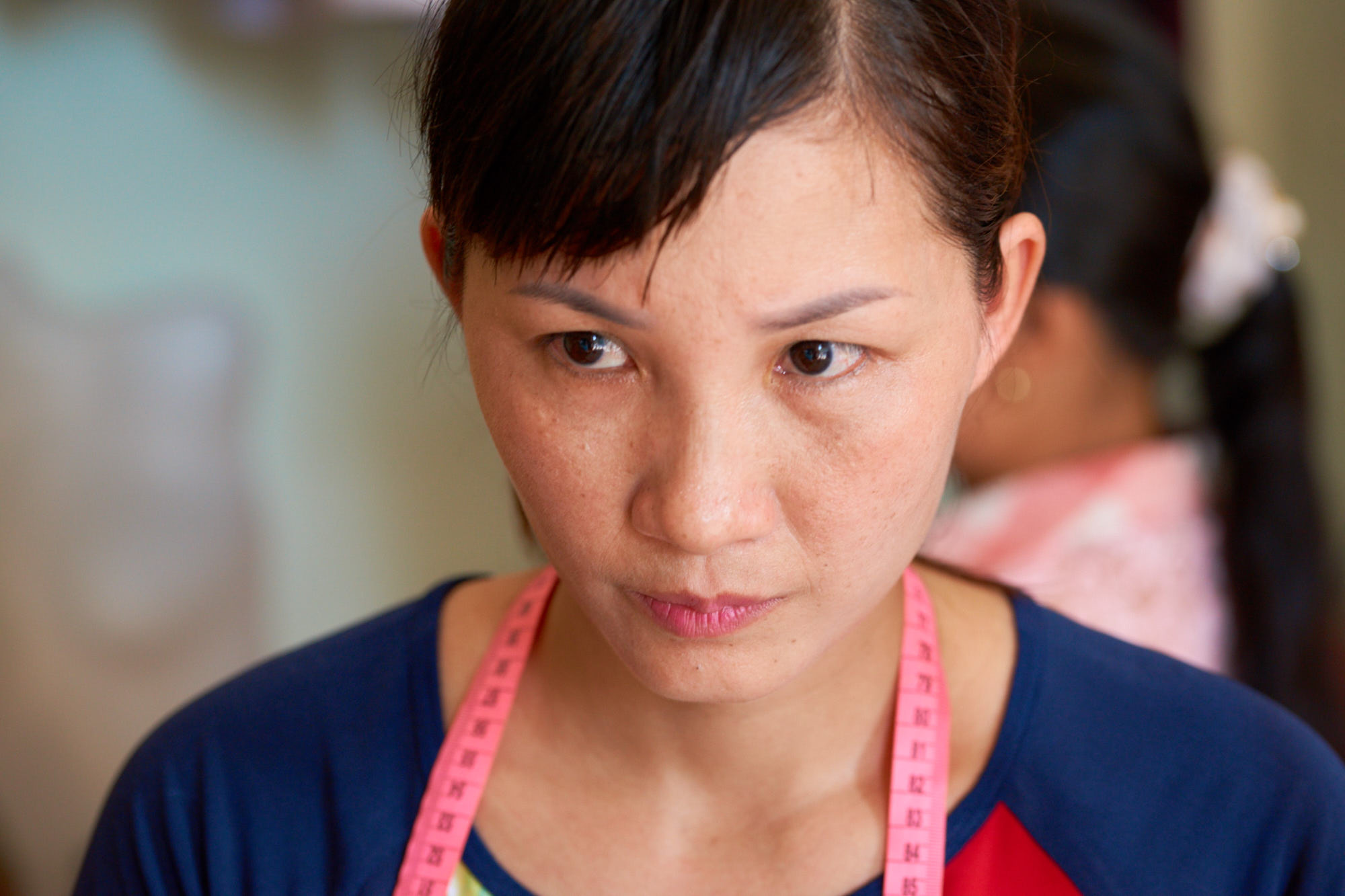Vinh operates a dressmaking shop in the Hoai Duc District of Vietnam. Her husband works with her and now they are able to comfortably support themselves and their two children. They have a son who is 11 years old and a daughter who is 5 years old.
Vinh started her dressmaking shop in 2003, but the first 10 years were very hard. Her shop was rundown and she didn’t have many customers.



In 2013, she borrowed money from relatives and the bank to fix up her shop and purchase seven new sewing machines. She also hired five employees to do contract work for larger companies, but she was losing money and struggling to stay in business.
Vinh was not trained in business management, and her employees weren’t trained, so there were many faults and mistakes in the products they produced. She spent a lot of her time fixing these mistakes and was not able to serve her own local customers well. This was causing her to lose the work that was the most profitable.



There were many months Vinh lacked the money to cover her regular expenses such as salaries and phone calls. She was also struggling to repay her loans.
The stress was hard on her marriage and family. She frequently argued with her husband over her workload and she had little time to care for her children. Her family income was below the poverty line for her community. This meant they were making less than $5 USD per day.
But things began to change when she decided to join the YWAM Mercy Vietnam Opportunity Team that was being started in her area.




In 2014 she joined the Opportunity Team being set up by YWAM Mercy Vietnam in her community.
YWAM Mercy Vietnam, along with community leaders, invited families below the poverty line in the community to be part of a local team that receives business training and mentorship. This team meets every three months to receive training and to support each other.




In the first few months Vinh received training in Family Business Management, Loan Management, Sales and Marketing, as well as Communication and Negotiation.
As a result of the training, she realized her business should focus on doing one thing well. She decided to focus on serving her local customers with custom clothes and dressmaking. Based on this decision, and the training she received, she created a business plan. Her business plan was approved through YWAM Mercy Vietnam to get a micro-loan of US$430. She used this money to buy more fabrics and educate herself about current fashion trends so her customers would have more choices.





In June of 2016 Vinh was part of a business study tour sponsored by YWAM Mercy Vietnam. She, along with other small business owners, went to another district and toured a large noodle factory. The factory owner shared with them about his business plan and how he runs a large business successfully. He talked to the group about business challenges in the area and about different market conditions.
For Vinh, who has rarely even left her village, it was an eye opening experience that provided insight into business management and market conditions in Vietnam.




Being part of the Opportunity Team, receiving training in business, and seeing other businesses in action has helped Vinh gain confidence in operating her business.
Before she only saw herself running a small business, struggling to provide for her family. Now she is able to run her business more effectively and see the difference it makes in her family’s life.

Now, three years after Vinh started making changes, you would hardly recognize her shop or her business. She has a growing base of direct customers who are coming to her for fashion advice and telling their friends about her products. Her working conditions and hours are much better for her family and the family income has increased to an average of US$15 per day. This means she has enough money to provide for her family, educate her children, and continue to invest in growing her business.



Vinh is a great example of the people and families YWAM Mercy Vietnam is working with. Though there is a lot of poverty, many of these people are hardworking. Access to opportunities like business training, a support network, and access to micro-loans mean that, with steady effort, they can successfully leave poverty.






